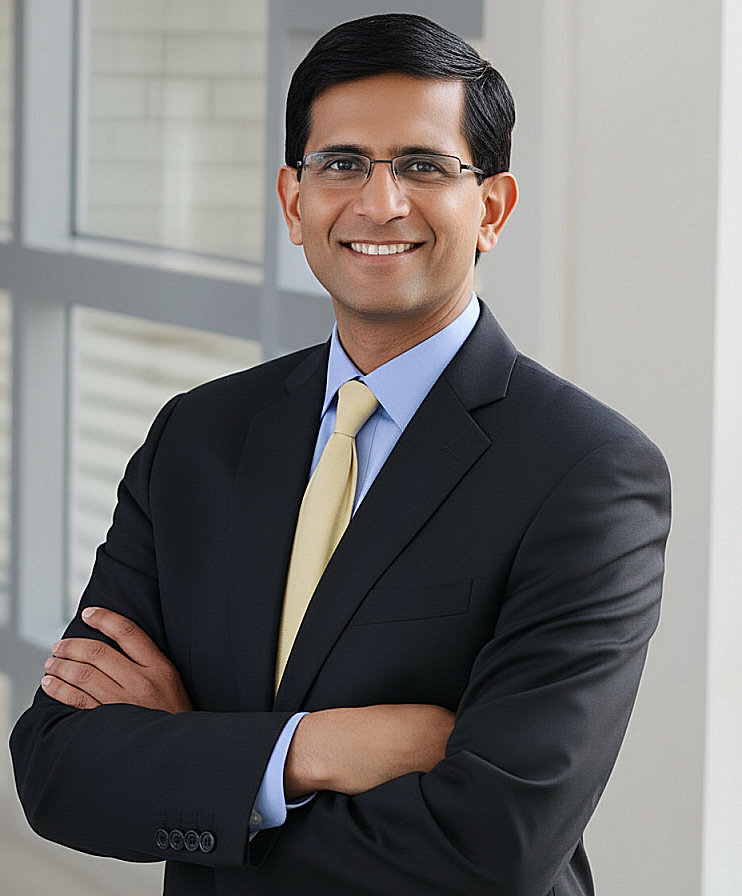Sanjay Rajagopalan, MD, MBA, a leading figure in cardiovascular medicine and environmental health, has been honored with the prestigious 2025 American Heart Association Distinguished Scientist Award. This accolade, recognized as the highest honor by the American Heart Association (AHA), celebrates Dr. Rajagopalan’s groundbreaking contributions that have dramatically advanced our understanding of cardiovascular disease and stroke. His work is exemplary in bridging the gap between environmental risk factors and cardiovascular health, catalyzing a paradigm shift in how these elements interplay in human disease.
Dr. Rajagopalan serves as Chief of Cardiovascular Medicine at University Hospitals Harrington Heart & Vascular Institute and also heads the Case Cardiovascular Research Institute at Case Western Reserve University School of Medicine. His research portfolio spans several dimensions of cardiovascular health, with a unique focus on elucidating the mechanisms through which environmental pollutants—especially airborne particulate matter—exert deleterious effects on the cardiovascular system. His findings have been instrumental in reframing air pollution not merely as a respiratory hazard but as a critical determinant of vascular dysfunction, atherosclerosis, and hypertension.
The impact of Dr. Rajagopalan’s research is underscored by his role in pioneering next-generation therapeutic approaches aimed at mitigating cardiovascular risk. His innovative work incorporates multimodal imaging techniques that enhance the visualization and understanding of complex cardiovascular disorders at a cellular and molecular level. By integrating advanced vascular imaging with molecular biology, Dr. Rajagopalan has helped develop diagnostic and prognostic modalities that are reshaping clinical cardiology and personalizing treatment strategies for patients with vascular diseases.
Dr. Mehdi Shishehbor, President of UH Harrington Heart & Vascular Institute, praised Dr. Rajagopalan’s global influence, emphasizing how his research has informed international public health policies. This recognition reflects the timeliness and importance of examining environmental determinants of cardiovascular health, as the majority of global populations are exposed to increasing levels of air pollution and environmental toxins. Dr. Rajagopalan’s work lays the scientific foundation for public policies aiming to reduce cardiovascular mortality linked to environmental stressors.
Sustained funding from the National Institutes of Health (NIH) has supported Dr. Rajagopalan’s expansive research endeavors. His election to esteemed professional societies such as the American Society of Clinical Investigation and the American Association of Physicians stands as a testament to his scientific rigor and impact. Holding the Herman K. Hellerstein, MD Professorship of Cardiovascular Research, he leads efforts that combine bench science, clinical insight, and public health considerations to address the complex challenges of cardiovascular disease.
Dr. Rajagopalan’s publication record is robust, comprising over 300 peer-reviewed articles in leading journals including The New England Journal of Medicine, JAMA, and Circulation Research. These publications span mechanistic studies on endothelial injury induced by particulate matter to clinical investigations on cardiovascular risk stratification. Beyond original research, his editorial contributions to major textbooks and monographs have helped shape educational frameworks guiding new generations of cardiovascular scientists and clinicians.
A notable aspect of Dr. Rajagopalan’s work is its interdisciplinary nature, integrating cardiology, environmental health, molecular biology, and health policy. His studies have clarified how environmental toxins initiate inflammatory cascades, oxidative stress, and neurohormonal dysregulation, thereby accelerating atherosclerosis and vascular remodeling. These mechanistic insights have opened avenues for pharmacological interventions targeting oxidative stress pathways and inflammatory mediators exacerbated by pollution exposure.
In accepting the award, Dr. Rajagopalan highlighted an essential truth often overlooked: the heart functions in concert with its environmental context. He eloquently described how recognizing the inseparability of environmental and cardiovascular health advances not only medical understanding but also societal awareness. This holistic viewpoint is crucial as cardiovascular disease remains the leading cause of death worldwide and environmental risk factors continue to rise with urbanization and industrialization.
The Distinguished Scientist Award, presented since 2003 to a select group including several Nobel laureates, underscores the caliber of Dr. Rajagopalan’s achievements. It places him among the most influential cardiovascular researchers who have shaped both the scientific community and clinical practice worldwide. His work not only addresses fundamental questions about vascular biology but also translates into actionable knowledge that benefits patients and populations, advancing the AHA’s mission for healthier lives free of cardiovascular disease and stroke.
University Hospitals in Cleveland and Case Western Reserve University provide fertile ground for this type of innovative investigation by fostering collaborative research environments. These institutions are well-known for their integration of advanced clinical care with cutting-edge scientific inquiry. Dr. Rajagopalan’s leadership positions at both institutions reflect his commitment to driving forward translational research that impacts patient outcomes directly while pushing the boundaries of cardiovascular science.
As environmental health emerges as a central theme in chronic disease research, Dr. Rajagopalan’s contributions serve as a critical beacon guiding future efforts. His work exemplifies the power of combining clinical medicine with rigorous scientific inquiry and public health advocacy. The recognition by the American Heart Association not only honors his past achievements but also amplifies the urgency of addressing environmental determinants of cardiovascular health globally.
In sum, Dr. Sanjay Rajagopalan’s receipt of the 2025 American Heart Association Distinguished Scientist Award signals a transformative milestone not just for him but for the field of cardiovascular medicine. By illuminating the pivotal role of environmental factors in cardiovascular pathology, he is reshaping how researchers, clinicians, and policymakers approach heart disease prevention and treatment in the 21st century.
Subject of Research: Cardiovascular disease, environmental risk factors, air pollution impact on cardiovascular health, innovative therapeutic modalities, vascular imaging.
Article Title: Dr. Sanjay Rajagopalan Receives 2025 American Heart Association Distinguished Scientist Award for Pioneering Work on Environmental Cardiovascular Risk
News Publication Date: Not explicitly stated in the content
Web References:
University Hospitals: https://www.uhhospitals.org/
Case Western Reserve University: http://case.edu/
Image Credits: University Hospitals
Keywords: Cardiovascular disease, heart disease, vascular disease, environmental risk factors, air pollution, cardiovascular imaging, cardiovascular research, therapeutic modalities, public health policy
Tags: air pollution and cardiovascular riskAmerican Heart Association Distinguished Scientist Awardatherosclerosis and hypertension studiescardiovascular medicine advancementsCase Western Reserve University cardiovascular researchenvironmental health impact on heart diseaseenvironmental risk factors and healthinnovative therapeutic approaches in cardiologymultimodal imaging techniques in cardiovascular researchparadigm shift in cardiovascular disease understandingSanjay Rajagopalanvascular dysfunction research





